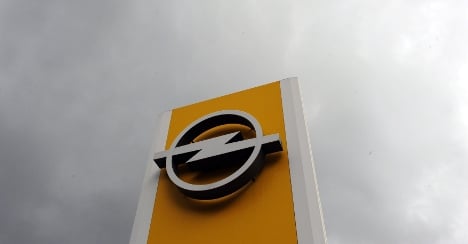With just five weeks until German elections, leading politicians on Sunday ratcheted up calls for General Motors and US authorities to make a decision as early as next week.
“The sooner the better,” German Chancellor Angela Merkel told ZDF television in an interview for broadcast late Sunday. “I wanted it to come on Friday evening. Now, I hope it will be next week.”
The board of General Motors – which emerged from bankruptcy protection in July – met on Friday in Detroit to mull the future of Opel, but said in a statement that the meeting ended with no decision made.
The board discussed two takeover offers on the table – one from Canadian autoparts maker Magna International and state Russian lender Sberbank, and another from Brussels-based investment group RHJ International.
A German Economy Ministry spokesman told AFP he could not say precisely when negotiations might resume.
GM, which is now more than 60-percent held by the US government on the heels of its bankruptcy, did not comment at the weekend on what the next steps would be.
GM is believed to favour RHJ as more attractive and easier to implement. But Germany has an interest in Magna’s bid because it appears to contain greater protections against job losses in Germany.
Both bidders want to cut around 10,000 jobs at Opel. In all 25,000 jobs would be at stake in Germany if Opel were to fold altogether.
Bringing its weight to bear, the German government is stumping up several billion euros in loans to sweeten the deal. In addition, around half of General Motors European employees work in Germany.
German Foreign Minister Frank-Walter Steinmeier, who hopes to unseat Merkel in September 27 elections, said in a statement he had telephoned his US counterpart Hillary Clinton to press Berlin’s case.
Steinmeier “emphasised that after several months of intensive negotiations, the time had now come for a decision,” according to a statement issued by the foreign ministry.
“The workers at Opel deserve clarity and a credible prospect for the future,” the statement added. He called for a decision “as quickly as possible that safeguards the future of all Opel factories and as many jobs in Germany as possible.”
According to press reports, Germany is prepared to offer a €4.5-billion loan to Magna in an attempt to persuade GM to choose the Canadian-led offer.




 Please whitelist us to continue reading.
Please whitelist us to continue reading.
Member comments